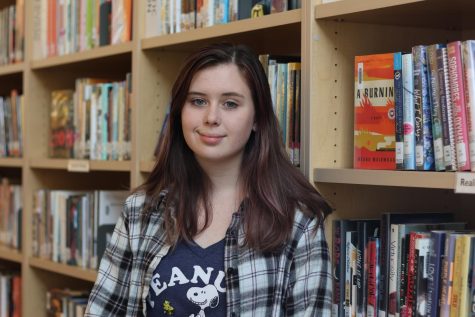Prep-tober: Now is The Time to Become a Novelist
Novel November is fast approaching, as writers prepare their stories.
October 6, 2021
National Novel Writing Month, more commonly referred to as Novel November, is an annual event where hundreds of thousands of writers across the country try to finish 50,000 words of a new novel before the end of November. Hosted by NaNoWriMo, a nonprofit organization, the challenge involves a 1,600 daily word goal and often, many late nights fueled by numerous coffee.
Although the race for words begins in November, many prepare their stories in the month of October or “Preptober,” as it’s commonly referred to in the NaNoWriMo community.
According to the NaNoWriMo website, the first few days of October should be taken to develop a detailed outline of the plot of your novel. In the following days, it’s suggested that you make a routine with time for writing, and flesh out the characters that will populate the plot.
Utilizing the time during Preptober is crucial to creating a successful novel by the end of November.
Although Novel November is an endeavor that is incredibly fast-paced and difficult, if not impossible, to do without groundwork ready, the outcome is an incredible feeling of accomplishment, whether you make it through the entire month or not. Although I’m someone who usually consumes books rather than writing them, I loved participating in Novel November and the progress I made then gave me the confidence to continue writing in my spare time, outside of November.
As a high school student, it’s very difficult to find time and reason to do personal writing, but Novel November provides both an incentive and community for those who choose to participate, making the event something anyone who enjoys writing should participate in.
I was first introduced to the idea of Novel November in sixth grade by my teacher, Mr. Vierra. Going into middle school, I loved to read but had never given a significant shot at trying to write something myself.
Instead of exploring characters and a world that someone else had created, I was the one constructing entirely new places and people. Instantly, I fell in love with fictional writing.
Since then, I’ve started several stories and thought about writing several more. However, I’ve never finished a novel, despite the growing list of stories that I have started.
My freshman year at La Salle, I gave Novel November another try, only to stop 16 pages in. Then the following year I gave it another shot, taking more advantage of Preptober to ensure I had a direction to focus my writing on, making it to 19 pages in the end.
When I participated in Novel November both years, I did so at the same time as a friend from the middle school class when I first learned about the event.
Once I did get the ball rolling, having someone to write alongside helped me to hold myself accountable.
Having someone who you can talk to about the writing process is insanely helpful in terms of motivation. Whether or not you’re writing during Novel November, having someone to share your ideas with and talk about them makes writing more enjoyable.
Participating in this challenge even one time gives you a good sense of where you are as a writer and what steps you need to take to become a better writer. For example, Novel November makes you realize that it’s easier for you to have several short writing sessions, or that you work better in longer sessions while listening to certain music.
Additionally, there is no pressure to finish your novel by the end of the month. You can continue writing beyond November, finishing your 50,000-word rough draft on your own time.
The book “Fangirl” by Rainbow Rowell started as a Novel November project. By the end of the month, she was only about halfway through the book.
“It’s some of my bravest writing,” Rowell wrote for a pep talk on the NaNoWriMo website.
She was even resistant to the idea of it at first, assuming any writing done in such a rushed fashion couldn’t be good writing.
But the point isn’t that the writing is good and polished. The point is that you have a first draft, a starting place.
After Novel November, that journey doesn’t end. Through the website, there are tips for how to revise and start the process of looking to get published.
Even without traditional publishing, it opens doors to put a book out there that someone might need.
“Fangirl” has gone on to be a great success selling millions of copies and winning several awards that include the “Buckeye Children’s and Teen Book” 2015 award and the “Gold Inky” and “Silver Inky” in 2015.
In general, expressive writing can provide many benefits to mental health, which is especially important after coming out of quarantine.
Being able to escape by reading has helped me in the past and is something that I believe could help others as well. After the past couple of years that we’ve had, everyone deserves a good story to get lost in.





